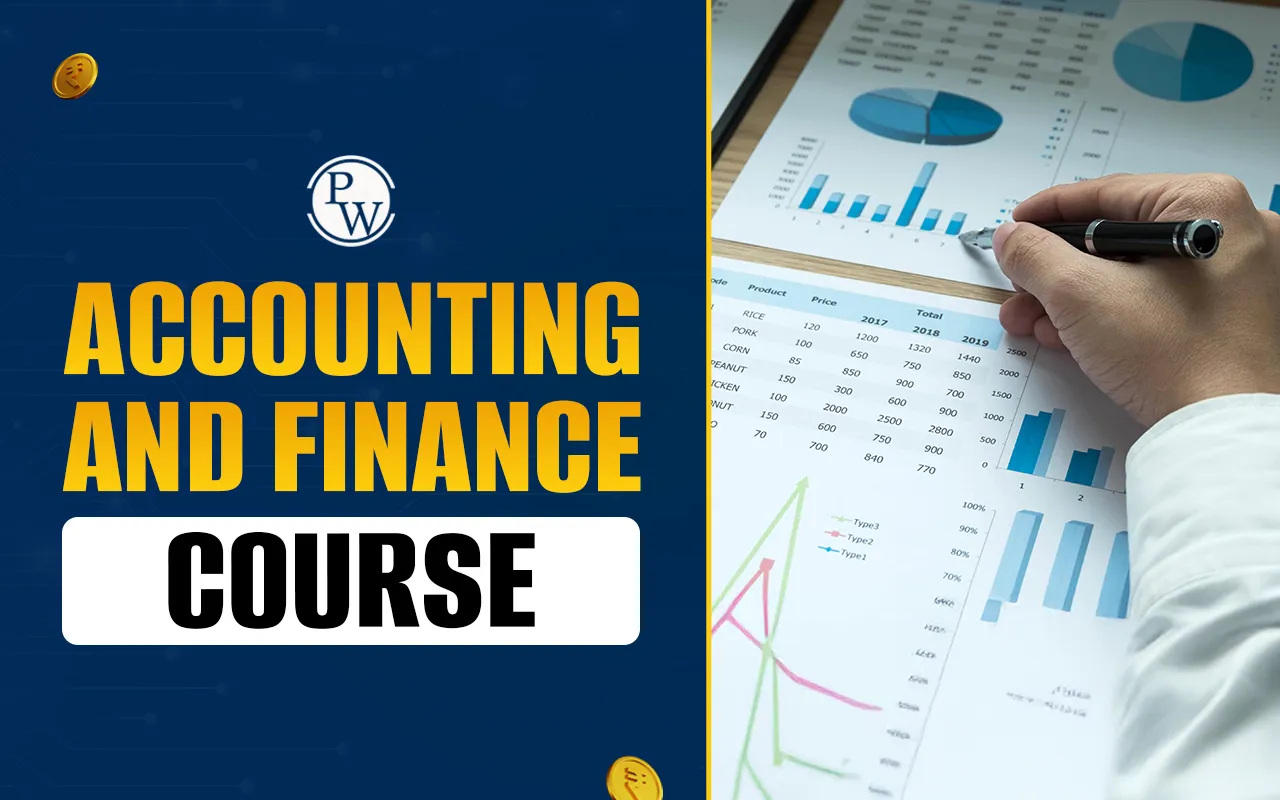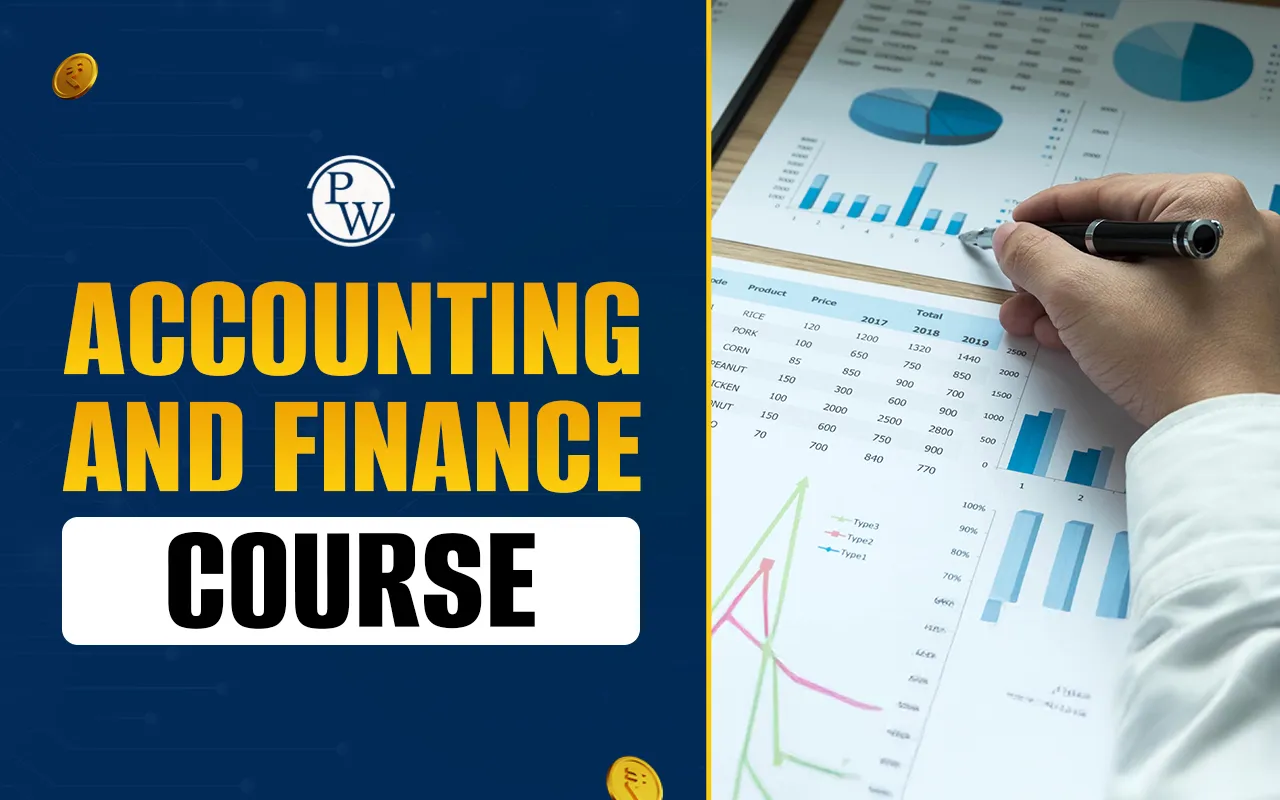

Accounting And Finance Course conveys the basic concepts and principles of how to oversee money matters, business operations, and financial records. Students learn how to interpret financial statements, develop & manage a budget, and assess investments. The subject matter for accounting and finance encompasses the use of bookkeeping, basic auditing, taxation, corporate finance, and financial analysis for business and personal endeavors.
Students will develop practice skills in evaluating and interpreting financial performance and risk, as well as how to make evidence-based decisions, that will enable them to pursue a career in commerce, banking, or industry. Students enrolled in an accounting and finance program will develop relevant skills in analytical abilities, basic quantitative skills, and organizational communication that will allow them to become an asset of any organization’s financial management plan.
Accounting And Finance Course Overview
Accounting and finance course is designed to teach students how to record, manage, and analyze financial information in businesses and organizations. The course covers the basics of accounting principles, financial reporting, budgeting, and how money flows within a company.
| Accounting and Finance Course Overview | |||||
| Degree Course | Level | Duration | Eligibility | Key Subjects / Focus Areas | Typical Career Options |
| Post Category | Accounting and Finance Course | ||||
| B.Com (Accounting and Finance) | Undergraduate | 3 Years | 12th grade (commerce) | Financial Accounting, Cost Accounting, Taxation, Auditing, Financial Management, Business Law, Corporate Governance | Accountant, Financial Analyst, Auditor, Tax Consultant |
| Bachelor of Accounting & Finance (BAF) | Undergraduate | 3 Years | 12th grade (commerce) | Accounting Principles, Financial Management, Taxation, Auditing | Accountant, Financial Analyst, Auditor, Tax Consultant |
| Bachelor of Financial Markets (BFM) | Undergraduate | 3 Years | 12th grade (commerce) | Financial Markets, Investment Strategies, Securities Trading | Financial Analyst, Stock Broker, Investment Advisor |
| Accounting and Finance BSc (Hons) | Undergraduate | 3-4 Years | Varies by university | Financial Accounting, Corporate Finance, Management Accounting | Finance Manager, Accountant, Financial Analyst, Corporate Roles |
| Accounting and Finance MAccFin | Integrated Master | 4 Years | Undergraduate eligibility | Advanced Accounting, Corporate Finance, Professional Training | Chartered Accountant, Finance Specialist |
| Diploma in Accounting & Finance | Diploma | 1-2 Years | Varies | Basic Accounting, Financial Management, Taxation | Entry-level Accountant, Assistant Auditor |
| Certification Courses (ACCA, CFA, CPA, CMA) | Professional Certification | Varies | Varies | Specialized Accounting, Finance, Taxation, Auditing | Chartered Accountant, Financial Analyst, Auditor |
| Specialized Degrees (Actuarial Science and Risk Management BSc, Finance and Mathematics BSc, Banking & Finance BSc) | Undergraduate | 3 Years | 12th grade | Risk Management, Actuarial Sciences, Finance & Mathematics | Actuary, Risk Analyst, Banking Professional |
Importance of Accounting and Finance Skills
Accounting and finance is crucial for many reasons. Importance of accounting and finance skills are given below:-
-
These skills help you understand how money is managed, which is essential for any business or organization to run smoothly.
-
Knowledge of accounting ensures that financial reports are accurate and comply with laws, enabling transparency and trust.
-
Finance skills help in planning budgets, forecasting income, and making strategic investment decisions that support business growth.
-
Studying accounting and finance also develops important abilities like critical thinking, problem-solving, and attention to detail, all of which are valuable in many jobs beyond finance alone.
-
Moreover, these skills offer job stability because every organization needs experts to manage their finances effectively.
Core Subjects Covered in the Course
Accounting and finance course will cover these fundamental subjects , typically :
-
Financial Accounting: Recording and reporting financial transactions; preparing financial statements (e.g., balance sheets and income statements).
-
Management Accounting: Use of accounting information to help managers make business decisions.
-
Corporate Finance: How companies manage their finances, including investment decisions and managing capital.
-
Taxation: Overview of tax laws and how to prepare tax returns (for individuals and businesses).
-
Auditing: Analyzing records to ensure their accuracy and safeguards are working as intended.
-
Business Law: Legal implications for business and financial transactions.
-
Banking and Financial Markets: Overview of the banking system and financial markets.
-
Financial Planning and Analysis: Models or methodologies that explain future performance of finances and budgeting resources.
Specializations in Accounting and Finance
Students can focus their studies in various fields of accounting and finance which will reflect their interest in their future careers. Some specializations in accounting and finance are given below:-
-
Forensic Accounting: Focused on investigating financial fraud and disputes that have legal implications.
-
Tax Accounting: Specializing in tax laws and regulations, and serving clients with regard to tax planning and compliance.
-
Auditing: Training to become proficient in reviewing financial documents for accuracy and consistency.
-
Management Accounting: Focusing on budgeting, costing, and financial planning in an organizational context.
-
Corporate Finance: Involving investment and financing strategies, as well as risk management.
-
Financial Analysis: Examines financial data and information for companies to direct their decision making.
-
Public Sector Accounting: Focusing on the management of finances in the public or non-profit sectors.
Career Opportunities After the Course
Accounting and finance degree provides you access to an extensive range of jobs. Possible positions include accountants, auditors, financial analysts, tax advisors, budget analysts, and financial planners. Opportunities for these positions exist in corporate companies, banks, government, and consulting.
Many positions in this field can provide good job security and opportunities for advancement. Accountants and finance experts also have the potential to work abroad, as most of these positions are recognized outside of the U.S., and payroll and accounting functions are required to operate businesses in most countries. If you aim to deepen your skills in investment banking in high-growth markets, consider enrolling in the Finance, Tax and Accounting Course. This program offers over 65 hours of structured learning, live sessions, case studies, and certification.
